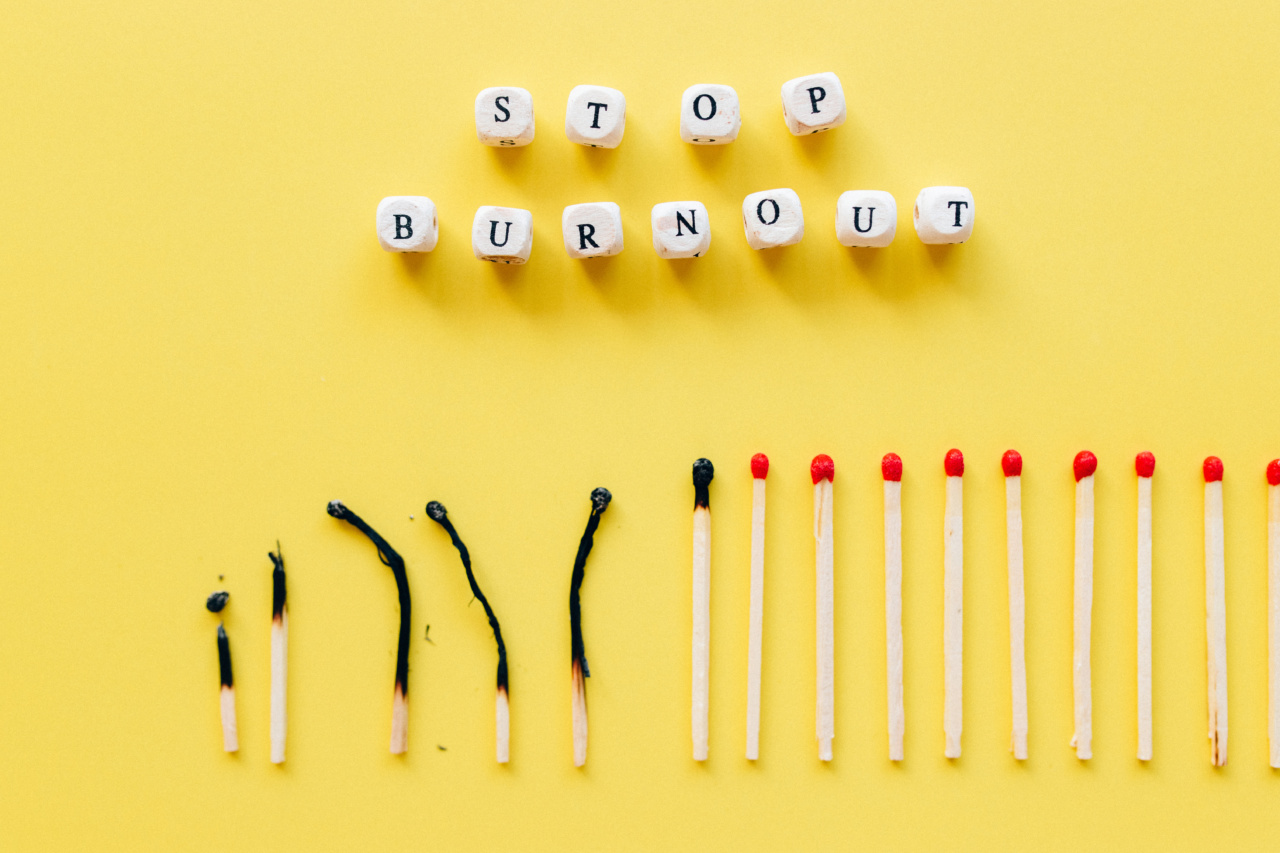Burnout is a state of emotional, physical, and mental exhaustion that occurs when you feel overwhelmed, emotionally drained and are unable to keep up with everyday demands.
It’s a condition that affects many people, especially those in high-pressure jobs, and can have serious consequences if left untreated. In this article, we’ll explore ten ways to spot burnout and how to stop it.
1. Exhaustion and Fatigue
One of the first signs of burnout is exhaustion and fatigue. You may feel tired all the time, even after a good night’s sleep. You may also feel like you have no energy or motivation to do anything, even things that you enjoy.
To stop burnout from causing you extreme exhaustion, you first need to identify the cause of your burnout. It may be that you are taking on too much work or not taking enough time to rest and rejuvenate.
Once you understand the cause, you can take steps to address it.
2. Lack of Motivation
Another common sign of burnout is a lack of motivation. You may feel like you don’t care about your job, your relationships, or your hobbies anymore. This can lead to feelings of apathy and disinterest in things that used to give you pleasure.
To address a lack of motivation, try to identify the underlying cause. It could be that you are feeling overwhelmed or that you have lost your sense of purpose. Once you know what’s causing your lack of motivation, you can take steps to address it.
3. Frustration and Irritability
Burnout can also cause feelings of frustration and irritability. You may find yourself snapping at colleagues, friends, or family members for no apparent reason.
You may also feel like you’re constantly on edge or that you’re easily upset by minor things.
To stop feelings of frustration and irritability, it’s important to prioritize self-care activities. This could include things like exercise, healthy eating habits, or meditation.
You may also need to set boundaries at work or in your personal relationships to reduce stress and pressure.
4. Insomnia or Sleep Disturbances
Burnout can also lead to sleep disturbances such as insomnia. You may find it difficult to fall asleep or stay asleep, even when you’re exhausted. Alternatively, you may sleep for long periods but still feel unrefreshed when you wake up.
To address insomnia or sleep disturbances caused by burnout, try to establish a regular sleep schedule and bedtime routine. This could include things like avoiding screens before bed, taking a warm bath, or reading a book to help you relax.
5. Decreased Productivity
Burnout can also lead to decreased productivity. You may find that you’re unable to focus or concentrate on your work, or that you’re making mistakes that you wouldn’t normally make.
You may also find yourself procrastinating or avoiding tasks that you find challenging.
To boost productivity and overcome burnout, consider breaking up your work into smaller, more manageable tasks. It may also be helpful to review your work processes and streamline your workload to reduce stress and pressure.
6. Feeling Detached or Disconnected
Burnout can also cause feelings of detachment or disconnection from the people around you. You may feel like you’re going through the motions at work or in your personal life, or that you’re not fully present in the moment.
To address feelings of detachment or disconnection, try to prioritize social interactions and relationships. This could include things like scheduling regular catch-ups with friends or colleagues, or taking up an activity that you enjoy.
7. Physical Symptoms
Burnout can also cause physical symptoms such as headaches, muscle tension, and stomach problems. You may also experience changes in your appetite or weight, or be more susceptible to illnesses.
To address physical symptoms caused by burnout, it’s important to pay attention to your body. Rest when you need it and make sure you’re nourishing yourself with healthy foods and regular exercise.
It may also be helpful to seek professional medical advice or support.
8. Cynical or Negative Attitude
Another common sign of burnout is a cynical or negative attitude. You may find yourself becoming more pessimistic about your job or the world around you, or that you’re constantly complaining about things that you used to tolerate.
To address a cynical or negative attitude, try to focus on the positives in your life and take steps to increase your optimism.
This could include things like practicing gratitude, visualizing positive outcomes, or seeking out inspirational stories or people.
9. Loss of Balance or Perspective
Burnout can also cause a loss of balance or perspective in your life. You may find yourself prioritizing work over your personal life or having difficulty seeing the bigger picture.
You may also find yourself becoming more rigid in your thinking or more resistant to change.
To address a loss of balance or perspective, try to prioritize self-care and life balance activities. This could include things like setting boundaries at work, taking regular breaks, or pursuing hobbies and interests outside of work.
10. Decreased Satisfaction and Happiness
Lastly, burnout can lead to a decreased sense of satisfaction and happiness in your life. You may feel like you’re not achieving your goals or that you’re not living up to your potential.
This can lead to feelings of depression or hopelessness.
To increase your satisfaction and well-being, try to focus on things that bring you joy and fulfillment in your life.
This could include things like spending time with loved ones, pursuing hobbies or interests, or volunteering for a cause that you care about.
Conclusion
Burnout is a widespread problem that can have serious consequences if left untreated. However, by recognizing the signs of burnout and taking steps to address them, you can prevent burnout from having an adverse effect on your life.
The key is to prioritize self-care and take proactive steps to improve your well-being and happiness.






























